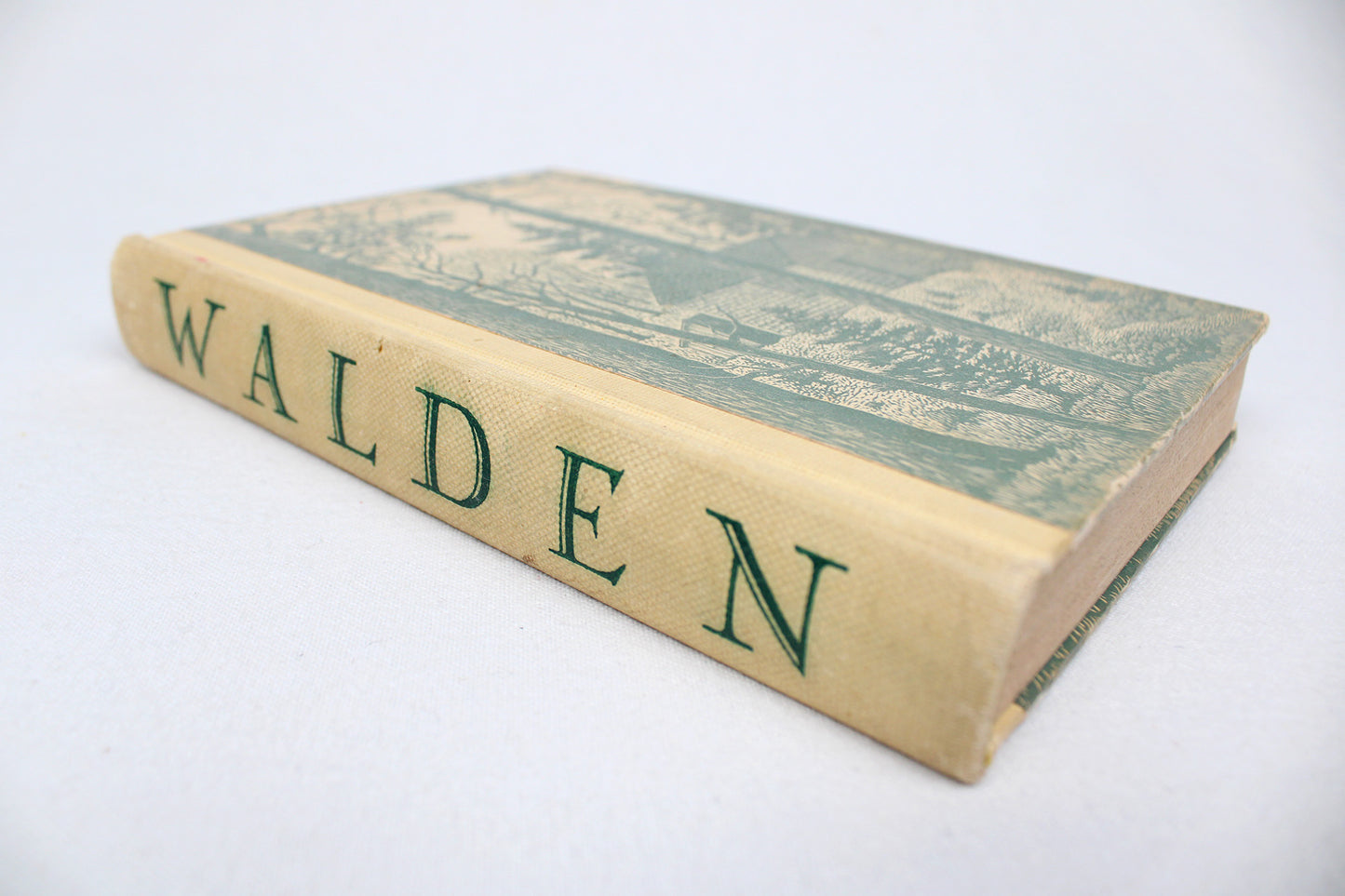The Regionals
Walden, or Life in the Woods, By Henry David Thoreau
Walden, or Life in the Woods, By Henry David Thoreau
Couldn't load pickup availability
NORTHEAST.
Nature / Outdoors.
A used bookstore seems incomplete without at least one copy of Walden. Walden really needs no introduction, but only resuscitation for each successive generation that comes across it. In summary, “Walden, or Life in the Woods” documents transcendentalist thinker, writer, and often provocateur Henry David Thoreau’s decision in 1845 to leave the ordered and increasingly commercialized community he had known in the prosperous Boston suburb of Concord, for a more pure, artistic, appreciative life at its natural edges. A classic case of turning one’s back on a world one feels has lost its way, Thoreau’s Walden may indeed be the most American example of this tendency seen across the ages. Having fueled well-known religious and artistic quests by the tens of thousands, Walden sets up as uniquely American, if very much a product of the 19th-century: a bustling perhaps too money-driven culture reaches an early peak of acquisition for acquisition’s sake driving one often cantankerous, and just as often prickly and puritan individual to turn his back on it in a quest for a new / alternative life method—one founded on a simple purity of mind, soul, and work. Thoreau’s famous cabin in the woods next to Walden pond (built by hand on land extended by his famous neighbor and mentor Ralph Waldo Emerson), is still a fascinating look at the process and mental framework behind how one cuts loose from the heavy constraints of a hyper-acquisitive society in order to chart a new alternative approach. The fact that the details of his creating and building the cabin itself feature so prominently among the wide space that the cabin provided him to do the more important work, as he saw it, of observing the amazing workings of nature, getting in step with that natural clock (by leaving behind the rigid demands of the shift whistle), and allowing nature to reveal what it may; and reveal it did, Walden still viewed as a start-point for the American environmental movement, a practical and spiritual cause whose work continues with fresh urgency in our own moment. [Condition: Used Good — The amazing presentation of this book is what hooked us. The wood-cut style black-and-white illustrations inserted throughout the volume are wonderful and so so fitting. The book’s boards suffer loosening (the volume just short of 90 years old), with slight tears in the end and back papers at the binding as a result; plus, there is noticeable sun-damage on the back cover. Despite the near pristine state of the pages themselves, there were minor pencil notes, most of which we were able to remediate … except for page 127 (see images)! We were not entirely sure what to make of this possibly coherent / mad ecstatic scrawl, and so left it for the ages.]
Condition: Used Good.
Nonfiction.
Henry David Thoreau (Wood-Engravings by Thomas W. Mason).
The Heritage Press, 1939 (original: 1854).
Hardcover, 335 pgs, 5.5 x 8" / 1 lb 2 oz
1 in stock
Share
























